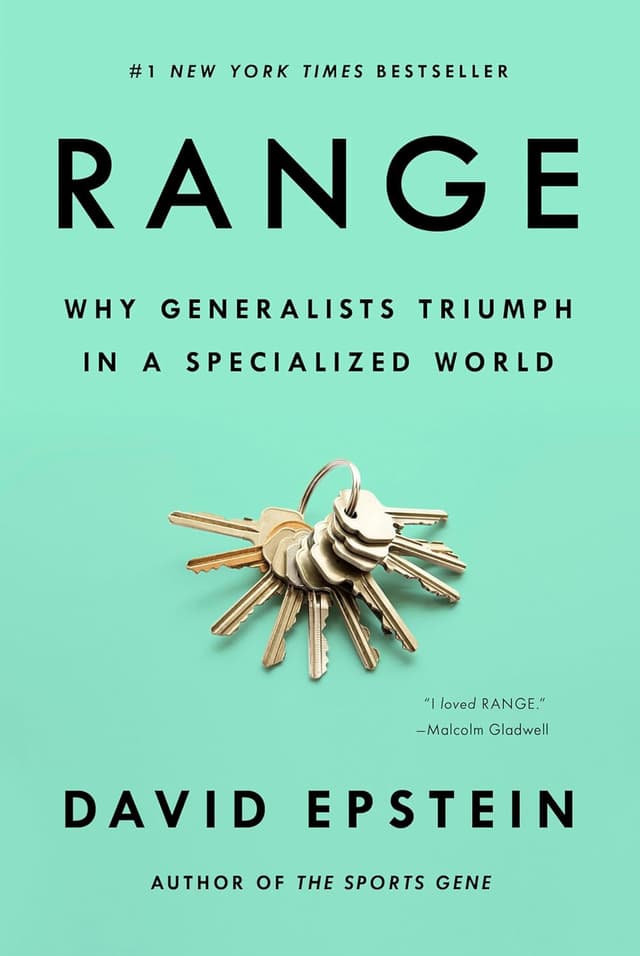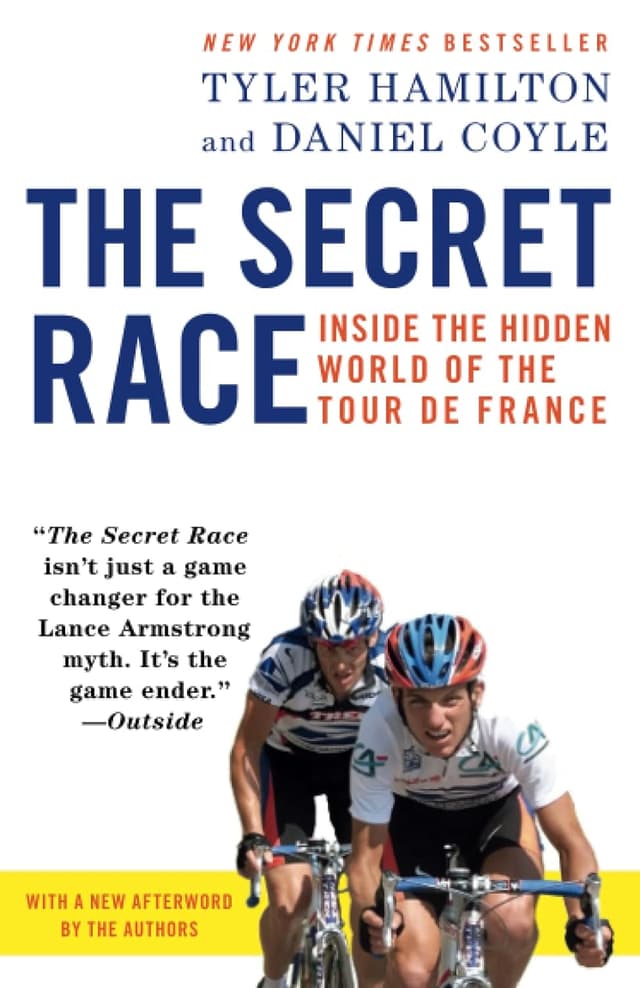Noah Brier | November 11, 2020
Why is this interesting? - The Specialization Edition
On sports, growing up, and the tradeoffs between a broad and narrow approach
Recommended Products

A book that explores how broad experiences and the ability to range widely are the keys to success.

An account of doping in cycling, particularly focusing on the relationship between a rider’s natural body makeup and their ability to benefit from doping.
Noah here. While everyone was talking about the now fully-retracted Atlantic feature about niche sports for both the craziness that is rich suburban parents and for the ways it apparently stretched the truth of some of their stories, something else jumped out at me. Specifically, it was this quote from Lars Tiffany, the men’s varsity-lacrosse coach at the University of Virginia:
“Do I hold the Fairfield County lacrosse player to a higher standard? Of course. You just know he’s been coached up. So flash-forward to me watching a [high school] junior on the lacrosse field. The thought is going through my brain that I like his skill set but there’s room for growth. But then I think, Wait. He’s already had a lot of people working on these things. He’s a little tapped out. Maybe I’ll take a player from Northern California or Texas. Someone who hasn’t been exposed to such elite coaching. Someone whose best lacrosse could be ahead of him. You try to tell yourself not to overanalyze, but you do.”
For the uninitiated (and who could blame you), Fairfield County is a hotbed for lacrosse and has been for a few decades. I know this because I grew up there in a decidedly un-lacrosse town getting shellacked by the top-ranked teams in the country by scores like 18-3. We got beat consistently by those nationally-ranked schools because we were a team composed mostly of athletes from other sports (of which I was decidedly not one), who had picked up a stick their freshman year at best. Lacrosse is a team game that requires quite a bit of skill with a stick, and there was no way to compete against a bunch of guys who had been cradling (that’s what you do when you run with a lacrosse ball) and passing since they were five years old.
With all that said, I still saw a few friends go off to some very good lacrosse schools on exactly the theory outlined by the UVA coach: if you could get yourself to an all-star level of play with just a few years of experience, what would be possible when you put a kid into the full ringer of NCAA Division 1 athletics?
Why is this interesting?
This story of an athlete excelling—and having more room to grow—in a sport they picked up late is a big theme in David Epstein’s 2019 book Range: Why Generalists Triumph in a Specialized World. Here’s a story that helps open his book, about the differences in the athletic upbringings of Tiger Woods (hitting golf balls on TV at age two) and Roger Federer (didn’t focus on tennis until his teens):
"[Tiger's] story is completely different from mine," [Federer] told a biographer in 2006. Woods's incredible upbringing has been at the heart of a batch of bestselling books on the development of expertise, one of which was a parenting manual written by his father, Earl. Tiger was not merely playing golf. He was engaging in "deliberate practice," the only kind that counts in the now-famous 10,000 hours rule to expertise. Reams of work on expertise development shows that elite athletes spend more time in highly technical, deliberate practice each week than those who plateau at lower levels. And Tiger has come to symbolize that idea of success—and its corollary, that the practice must start as early as possible.
But when scientists examine the entire developmental path of athletes, they find that the eventual elites typically devote less time early on to deliberate practice in the activity in which they will later become experts. Instead, they undergo what researchers call a "sampling period." They play a variety of sports, usually in an unstructured or lightly structured environment; they gain a range of physical proficiencies from which they can draw; they learn about their own abilities and proclivities; and only later do they focus in and ramp up technical practice in one area.
Obviously, both paths can work and I’ve read arguments that suggest our lack of focus in soccer, for instance, is exactly what has kept American men out of the very top echelons of the sport (until very recently).
It also strikes me that this is a version of what computer scientists call exploration versus exploitation, which essentially comes down to how long you should look around for an optimal solution before choosing the best one available. It’s often talked about in terms of slot machines: “The crucial tradeoff the gambler faces at each trial is between ‘exploitation’ of the machine that has the highest expected payoff and ‘exploration’ to get more information about the expected payoffs of the other machines.” I actually wrote about this in one of the very first WITIs:
As Brian Christian points out in his book Algorithms to Live By: The Computer Science of Human Decisions, there are actually tons of interesting stuff that lives in this tension. Do you go to the restaurant you like or try the new one that just opened? Should you load up an old favorite on Spotify or see what they’ve chosen for you this week? The answer, as we have all figured out and computer science has proven, is it depends. To figure out the best approach you’ve also got to know the time limit. In simplified terms, if you have lots of time left, exploration makes sense, if you’re approaching a deadline, exploitation is optimal.
Part of becoming an expert in anything is intuiting the correct path to take. It comes down to the interest and individual proclivities of the individual—whether they’re five or fifty. Not every kid needs to go full-bore into a tennis development crucible like Andre Agassi, which incidentally led to him hating the sport. On the other hand, sometimes there is merit in focus and refining technique over time, instead of risking becoming a master of none. (NRB)
Quote of the Day:
On the topic of sports performance, there’s a bit in the excellent book The Secret Race on doping in cycling that talks about the relationship between a rider’s natural body makeup and their ability to get the most out of doping. At the heights of doping the professional cycling world set a hematocrit threshold, the level of red blood cells in your body, of 50. What this effectively meant for cyclists was that they all took drugs to raise their levels until they were just shy of the doping threshold. Of course, this wasn’t great for folks who had naturally high red blood cell levels like Postal Service rider Marty Jemison:
Jemison, who won the U.S. national championship in 1999, rode just two Tours for Postal, a fact that might be attributed to the way the EPO era changed how teams assessed riders’ potential. “I had a natural hematocrit of 48, so EPO didn’t add that much horsepower to me,” he says. “The longer I was [at Postal], the more I saw that I was no longer being groomed for the A team. Clearly, they were looking for riders who could deliver a whole new level of results.” Jemison left the team after the 2000 season.
Quick Links:
Nick Cave on “How do I know I'm on the right path?” (NRB)
Which fabric masks protect us best against coronavirus? Or skip the details and take this MIT advice: “The best mask is the mask that you can wear comfortably and correctly for as long as you need to keep it on.” (NRB)
Thanks for reading,
Noah (NRB) & Colin (CJN)
—
Why is this interesting? is a daily email from Noah Brier & Colin Nagy (and friends!) about interesting things. If you’ve enjoyed this edition, please consider forwarding it to a friend. If you’re reading it for the first time, consider subscribing (it’s free!).